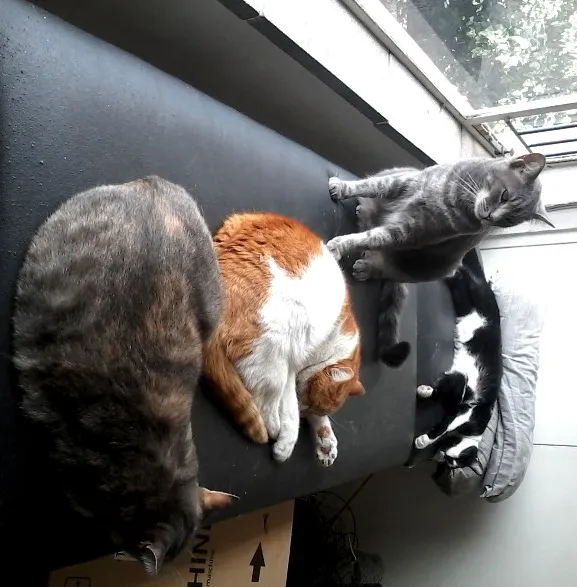Cats are solitary by nature and in the wild, they evolved to each occupy a territory which they defend against other cats. Keeping cats together in a household often doesn't work very well once you have more than two. It has been shown that feral cats do live in colonies although these have a strict hierarchy, with the female cats dominant. Once cats have formed a colony and agreed to live more or less in peace with each other, they will work together to keep outsiders away.
When cats are stressed they often become aggressive towards each other, or people in the household or they resort to inappropriate behaviour like spraying or urinating in the house. They also tend to display compulsive behaviour like licking themselves bald, pulling their hair out or getting idiopathic cystitis, which is an inflammation of the bladder lining that makes the cat behave as if it has a bladder infection.
Prevention is better than cure when it comes to problem behaviour and it is wise not to have too many cats in one household. Beyond 3 is frequently a recipe for disaster but if that's unavoidable, making sure that there are enough resources for each cat will help. Each cat needs to have its own bed, food and water bowls, litterbox and a place where it can retreat to, to avoid others if it feels the need.

Most days, they agree to disagree. Other days, its WW3
Sometimes, cats in the household can get along well and then a visiting cat from outside can upset their equilibrium. Once you have fighting, unhappy cats your vet may prescribe human antidepressant medication to solve problem behaviour in the household and this is often very effective. Cat moods, like humans, are strongly controlled by the neurotransmitter serotonin. The main drawback to medicating cats is the difficulty of getting them to take pills. Ear gels have been developed as an alternative but there is fortunately one remedy which cats will eat in their food: L-Tryptophan. This is an amino acid that is a serotonin precursor and has been extensively studied in cats and found to be safe and effective. It is an ingredient of anti-stress diets and many over-the-counter calming treatments.
When I was living at my previous address, there were many cats in the neighbourhood and cat fights were very common. I had to treat many abscesses in the time that I lived there and my cat Yoda, who is aggressive anyway, became impossible. He started living outside, lurking in the bushes and didn't eat much. Antidepressant medication did help but of course, giving him pills was almost impossible. In desperation, I started putting L-Tryptophan in his food and he improved slowly and started coming back inside but remained difficult to handle. He mellowed out further when I moved and there are fewer other cats around to fight with.
